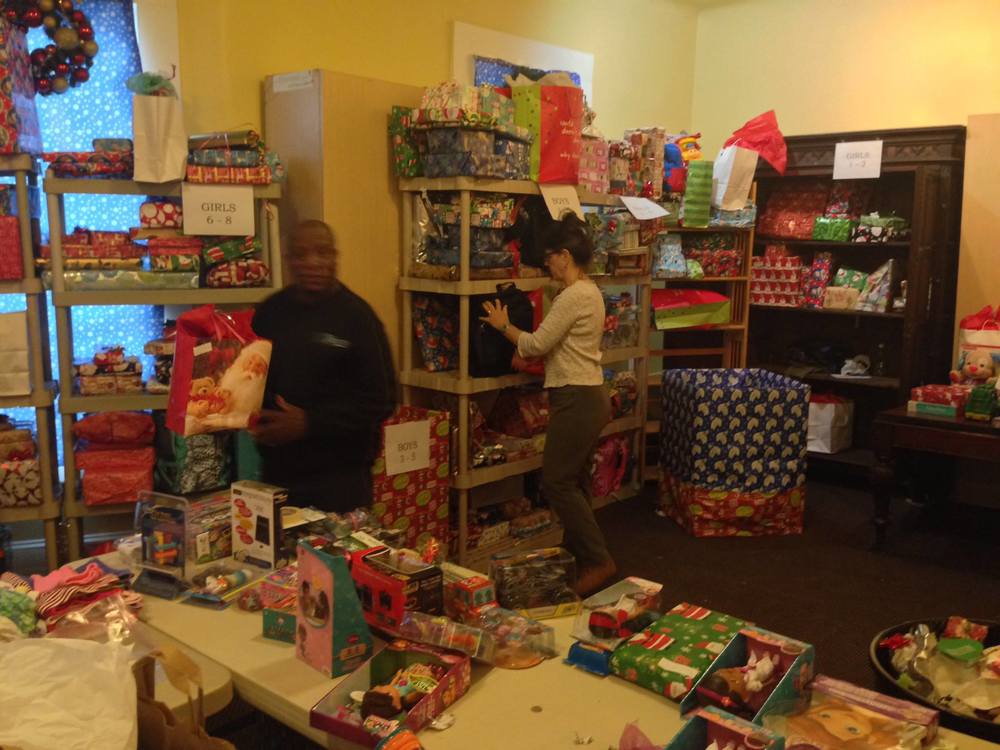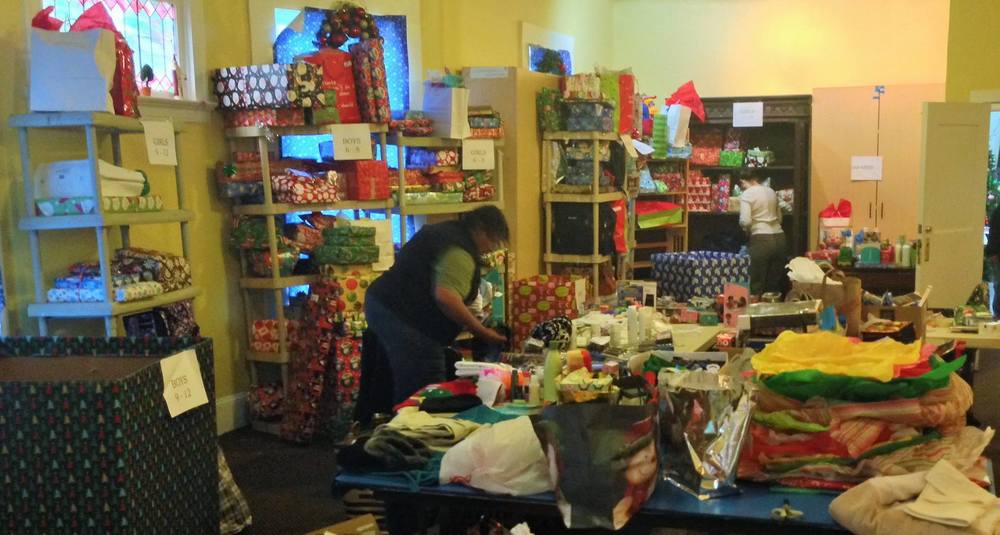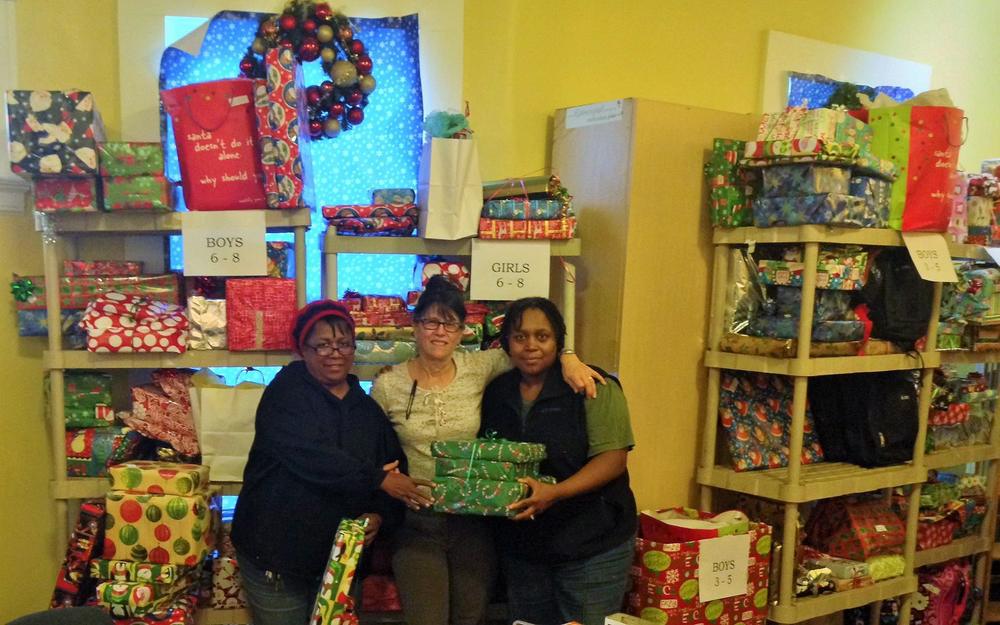Many are discouraged from voting in an 'off year election'. But the term is disparagingly misleading. The so-called ‘off year’ or non-presidential election cycle is tremendously important at the local and state levels. It is the opportunity to affect grassroots changes at home; the time to hold local, state & federal representatives accountable. In addition, it is a time to voice one's opinion on important ballot issues that directly affect our daily lives. As Jay Bookman, award-winning journalist, political columnist and blogger for The Atlanta Journal-Constitution put it, "Here in Georgia, if black Georgians voted in larger numbers, they might not have a government that refuses Medicaid expansion for hundreds of thousands of lower-income working people... they might not have a Legislature that recoils so instinctively from mass transit and other perceived “urban” amenities."
NAACP President and CEO Cornell William Brooks put it this way, “Voting is not a social luxury, it is our civic responsibility." In truth, voting is an action of responsibility to ourselves and our loved ones.
Black voter turnout six years ago was nearly 70%; but election analysts mainly attribute this to Barack Obama’s name on the ballot. According to United States census data, over 66% of registered Black voters went to the polls for the November 2012 election. That’s 2% higher than registered White voters, and nearly 6% higher than U.S. voters overall.
"The squeaky wheel gets the grease" is an American idiom used to convey the idea that the most noticeable (or loudest) problems (or people) are the ones most likely to get attention.
Source: Wikipedia
African Americans, along with unmarried women, youth voters and other voters of color also make up a rising population of eligible voters, according to a 2013 Voter Participation Center report. Together, this group makes up more than half of the eligible U.S. voting population. And yet, statistics show that in “off year elections” African Americans still don’t turn out to vote in proportion to the rest of eligible voters.
Clearly, some of the causes can be attributed to access - restrictions imposed by social and economic factors. While Emmaus House of Atlanta does not advocate nor endorse any political party or persuasion we do advocate engagement in the political process. We encourage self-empowerment by encouraging voting participation through sponsoring voter registration and turnout by partnering with social justice and political educational groups such as The Georgia Justice Project.
Here are a few reasons why everyone who is interested in social and economic justice, including our neighbors in Peoplestown should vote:
1. Earlier generations fought and died for this right.
We can't afford to lose the hard won gains nor dishonor the lives of so many who have given their blood, sweat, tears and some their very lives for us, the beneficiaries of their struggles for social justice. We as individuals and a people, no matter our ethnicity, cannot afford to relinquish the hard won rights of the Labor Movement in the early 20th century or the Civil Rights Movement of the 60’s. We must ask ourselves: how can we honor the personal sacrifices of Dr.Martin Luther King Jr. here in America during the 1960’s, and of Mahatma Gandhi in India in the 1940’s who was a model for Dr. King? We must continue to claim their victories. We must keep Dr. King's dream alive. We must make our voices heard. We must vote. As Gandhi enjoined, "Be the change you want to see in the world."
2. African Americans are an important voting bloc.
Statistically this was most evident proven in the 2008 & 2012 presidential elections. This should be our rallying cry to continue turning out in all elections, especially so at the all important local and state levels. Without a concerted voice, politicians won't address the needs of whole populations.
3. Everything to gain, and much to lose.
Issues such as unemployment, housing, education and health could worsen if voters don’t express their needs to elected officials. If voters don't demand changes, their needs most likely won’t be addressed.
4. Fighting against embedded apathy.
Many subscribe to the ‘I don’t feel like my vote counts’ school of thought and won’t vote in any election. African Americans need to vote and show that their vote is important. If we don't vote, we're sending the message that we don't count. A major way to express political will is through voting. As well, we need to ensure that politicians take our votes very seriously by showing up en masse. We need to hold our elected officials accountable by voting out those who are unresponsive to the needs of everyone.
We urge everyone in our neighborhood, and across the state, to vote at next Tuesday’s election. Let our voices be heard.
Listed below is the closest voting precinct to Peoplestown. But each registered voter is assigned a polling place, so please refer to you voter information card. If you you are unsure of your polling location, you can visit www.fultonelections.com or call 404-612-7020. Election Day - November 4th
Atlanta South Side Health Center
1046 Ridge Avenue SW
Atlanta, GA 30315
Information about Voting From Fulton County's Website
Polls to open at 7:00 am on Tuesday, November 4th
On Tuesday, November 4, 2014, all 370 precincts in Fulton County will open to welcome voters. The Fulton County Department of Registration and Elections is confident that pre-election preparations will result in an easy and pleasant voting experience for all electors. As always, administrative and technical support is available in the field and at the Election phone bank to address questions that may arise.
As of October 30, 2014, 75,051 voters have cast ballots during Early Voting and 5,942 via Absentee Ballot.
Voters who plan to vote in person on November 4th should keep the following points in mind:
- Voters must vote at their assigned polling place listed on their voter information card. Any voter who is unsure of where to vote should go to the Elections Department website at www.fultonelections.com or call 404-612-7020.
- Voters must provide identification that contains both a photo and signature in order to vote. Acceptable forms of ID include Georgia driver’s license (or ID card issued by a Georgia Department of Georgia Voters are required to show one of six forms of valid photo identification when voting in person, during the absentee or advanced voting period or at the polls on Election Day. The valid forms of identification are as follows:
- A Georgia driver’s license, even if expired.
- Any valid state or federal government issued photo ID, including a free Voter ID Card issued by your county registrar or Georgia Department of Driver Services (DDS).
- Valid U.S. passport.
- Valid employee photo ID from any branch, department, agency, or entity of the U.S. Government, Georgia, or any county, municipality, board, authority, or other entity of this state.
- Valid U.S. military photo ID.
- Valid tribal photo ID.
If a voter does not have one of these forms of photo identification, they can obtain a FREE Voter ID card at their County Registrars’ office or the Georgia Department of Driver’s Services.
Subscribe
Sign up with your email address to receive news and updates.







